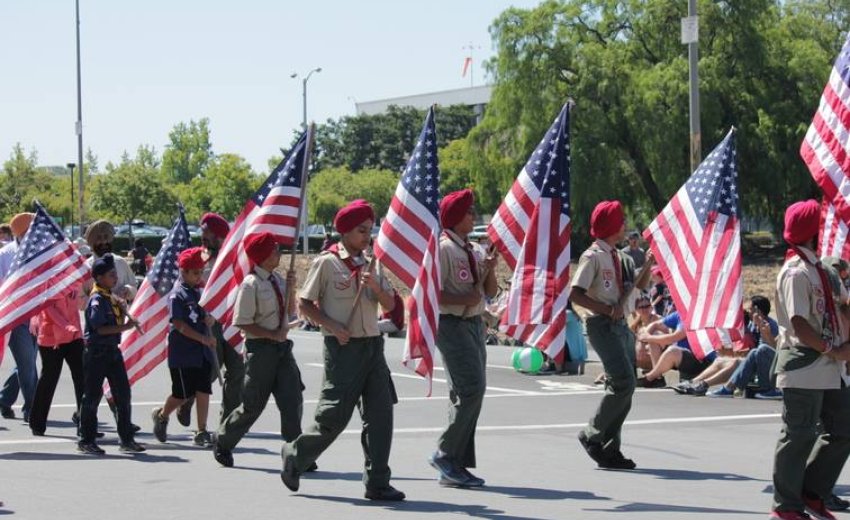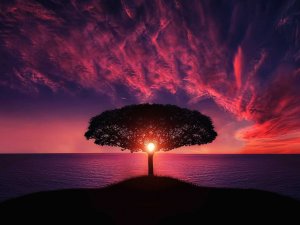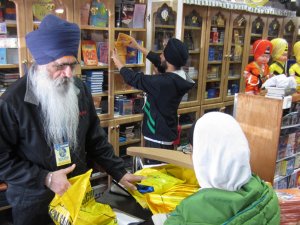I remember my early days in New York when the nearest gurduara was about 3000 miles away in California or in a corner of Northwest Canada’s British Columbia. Regardless of how far or how few, gurduaras were singularly designed to recapture and recreate the sights, sounds and smells of home, and the home was Punjab; this includes the allure of our chaotic management structure.
Some would argue, mostly from hope than fact, that now more than a century after Sikhs came to the Americas, change in our institutional structure and expectations is in the air. But it’s barely a whiff, there is little lasting aroma of fresh breeze. Our frequent political storms in gurduaras are like a Tsunami – delivering more havoc than progress, on a regular basis.
Religious lines drawn in the sand promise dangerous divisions in the larger non-Sikh communities as well. I would celebrate the many faith traditions of mankind except that, for some, the emphasis leans less towards tolerance and inclusiveness and more on “identity politics.” Religions – large and small – seem to be less understanding towards others and more pushing to become the dominant voice in a no holds barred wrestling competition. In this game of thrones religions are busy creating programs to garner special recognition at the expense of others. Somehow, somewhere they are pushing for a special place in God’s Creation.
Just the other day we turned the corner on July 4th. To me the enduring lesson of the day is The First Amendment, obviously retaining its magical spell for a shade over 240 years. I grant that its pristine message has been marred with increasingly visible damage but the structure holds.
One needs to revisit the language of the Founding Charter of this nation. “Congress shall make no law respecting an establishment of religion, or prohibiting the free exercise thereof, or abridging the freedom of speech, or of the press ….”
Thus spake We The People. This defines a free people. This is not a voice against religion. It bestows freedom and equality on all faiths.
There is a defining history, nothing arises in a vacuum. The first known democracy dates from fifth century BC when Greek city states elected their own officials and lived under their own laws.
Has it been a smooth trek since? Hardly. In the United States, women did not win the right to vote until almost 150 years later in 1920. During the Second World War, Jews were not easily admitted to most medical schools or, for that matter, let into the country. The Asian Exclusion Act made sure that the door to Asians (including Indians) stayed pretty much bolted until 1946. The current generation of Americans knows well the historic struggle of the Blacks for basic rights. I won’t even touch the time-worn injustice to Native Americans.
Remember that Jefferson – a theist, if ever there was one -- said, “I see no harm if my neighbor thinks there are twenty gods or that there is none.” North America quickly became a laboratory for human progressive society, and remains so today. Keep in mind that “In God we trust” and “One nation under God” did not enter our lexicon until the 19th century (1864.) The lesson I draw from Jefferson and the first amendment is that of separation of church and state in the public domain, not of lessening or diminishing either one for the other. This enables both church and state to create a more tolerant and inclusive society, especially for minorities.
I want to draw some parallels to my faith – Sikhi - that arose about 550 years ago and became an astounding laboratory of human progressive potential.
Resulting from centuries of yearly invasions by a variety of wannabe conquerors, looters, adventurers, traders, and their ilk, much of India had been hammered into a pliable land and people who laid down their arms and sold out or collaborated with the enemy du jour. But this did transform the Subcontinent’s northwest territory (largely greater Punjab) into an unmatched laboratory of genetic hybridization.
The Founder-Gurus of Sikhism spoke of One Creator that has no race or national origin; no form, gender, color or caste; no beginning and no end; yet is experienced through his creation. That is the crux of the opening alphanumeric of the Guru Granth – Ik Oankaar.
In a world known for inequality this was the great equalizer. This Creator is such that our senses cannot perceive and our intellect cannot fathom but with which our inner self can commune.
Sikhi thus speaks eloquently of We the People. A people who wrote a new chapter of human responsibility, of dreams and doubts, and of unsurpassed achievement.
Keep in mind that I am not equating the founding of Sikhism and American society. I am merely unearthing some parallels that connect the dots of the human journey.
Is our progress linear? Absolutely not. In our political trajectory there have been many a Trump, with many more to come. Our religious domain too is enriched with memories of those who absolutely sacrificed the self for a transcendental cause, and also littered by some who sold out for the proverbial thirty pieces of silver.
The Moral: When a cause is just, it is a call to action. And that is the battle worth fighting.
“Gagan damaama baajio pario nishanae ghao; khet jo mandio soorma ab joojhan ko dao”
The battle-drum beats in the sky of the mind; aim is taken, and the wound is inflicted. (Guru Granth ANG 1105.)





